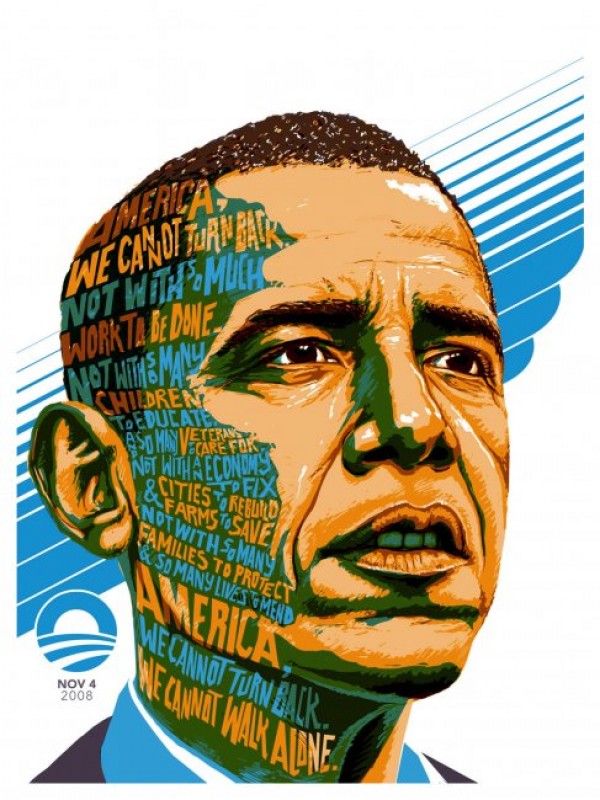![]() FRESH AIR: Author Michael Lewis made a radical request to the White House that he says he was almost certain would be denied: He wanted to write a piece about President Obama that would put the reader in the president’s shoes. To do this, the Vanity Fair contributing editor would need inside access. So what did he propose? “I’ve got to basically come and loiter and just kind of get to know him. It’s going to be very free-flowing; I want to do things like play basketball with him,” Lewis tells Fresh Air’s Terry Gross. “I said I wanted to caddy for him on the golf course. I wanted to be in meetings, I just wanted to be around, and no one had ever done this.” To Lewis’ surprise, access was granted because, according to Lewis, Obama wanted to do it. MORE
FRESH AIR: Author Michael Lewis made a radical request to the White House that he says he was almost certain would be denied: He wanted to write a piece about President Obama that would put the reader in the president’s shoes. To do this, the Vanity Fair contributing editor would need inside access. So what did he propose? “I’ve got to basically come and loiter and just kind of get to know him. It’s going to be very free-flowing; I want to do things like play basketball with him,” Lewis tells Fresh Air’s Terry Gross. “I said I wanted to caddy for him on the golf course. I wanted to be in meetings, I just wanted to be around, and no one had ever done this.” To Lewis’ surprise, access was granted because, according to Lewis, Obama wanted to do it. MORE
VANITY FAIR: From the time his wife goes to bed, around 10 at night, until he finally retires, at 1, Barack Obama enjoys the closest thing he experiences to privacy: no one but him really knows exactly where he is or what he’s up to. He can’t leave his house, of course, but he can watch ESPN, surf his iPad, read books, dial up foreign leaders in different time zones, and any number of other activities that feel almost normal. He can also wrestle his mind back into the state it would need to be if, say, he wanted to write.
And so, in a funny way, the president’s day actually starts the night before. When he awakens at seven, he already has a jump on things. He arrives at the gym on the third floor of the residence, above his bedroom, at 7:30. He works out until 8:30 (cardio one day, weights the next), then showers and dresses in either a blue or gray suit. “My wife makes fun of how routinized I’ve become,” he says. He’d moved a long way in this direction before he became president, but the office has moved him even further. “It’s not my natural state,” he says. “Naturally, I’m just a kid from Hawaii. But at some point in my life I overcompensated.” After a quick breakfast and a glance at the newspapers—most of which he’s already read on his iPad—he reviews his daily security briefing. When he first became president he often was surprised by the secret news; now he seldom is. “Maybe once a month.”
One summer morning I met him outside the private elevator that brings him down from the residence. His morning commute, of roughly 70 yards, started in the ground-floor center hall, and continued past a pair of oil paintings, of Rosalynn Carter and Betty Ford, and through two sets of double doors, guarded by a Secret Service officer. After a short walk along a back porch, guarded by several other men in black, he passed through a set of French doors into the reception area outside the Oval Office. His secretary, Anita, was already at her desk. Anita, he explained, has been with him since he campaigned for the Senate, back in 2004. As political attachments go, eight years isn’t a long time; in his case, it counts as forever. Eight years ago he could have taken a group tour of the White House and no one would have recognized him.
Passing Anita, the president walked into the Oval Office. “When I’m in Washington I spend half my time in this place,” he said. “It’s surprisingly comfortable.” During the week he is never alone in the office, but on weekends he can come down and have the place to himself. The first time Obama set foot in this room was right after he’d been elected, to pay a call on George Bush. The second time was the first day he arrived for work—and the first thing he did was call in several junior people who had been with him since long before anyone cared who he was so they might see how it felt to sit in the Oval Office. “Let’s just stay normal,” he said to them. MORE
![]() RELATED: What convinces a voter this way or that? It’s an age-old question that’s driven one of the surest, fastest-growing sectors of the American economy for the last several decades. But increasingly, that seemingly simple
RELATED: What convinces a voter this way or that? It’s an age-old question that’s driven one of the surest, fastest-growing sectors of the American economy for the last several decades. But increasingly, that seemingly simple  question is being asked, and answered, in astonishingly complex ways. In the heat of this campaign season comes a book, “The Victory Lab: The Secret Science of Winning Campaigns,” by SASHA ISSENBERG, that reveals the increasingly technical and micro-targeted tactics and strategies being employed by major political campaigns, including those of the Barack Obama and Mitt Romney campaigns. Issenberg, a former Philadelphia Magazine writer who covered the 2008 presidential campaign for the Boston Globe and now writes for Slate, has been cultivating expertise in the statisticians, strategists, academics, and maverick operatives who are reshaping how political campaigns are won and lost. MORE
question is being asked, and answered, in astonishingly complex ways. In the heat of this campaign season comes a book, “The Victory Lab: The Secret Science of Winning Campaigns,” by SASHA ISSENBERG, that reveals the increasingly technical and micro-targeted tactics and strategies being employed by major political campaigns, including those of the Barack Obama and Mitt Romney campaigns. Issenberg, a former Philadelphia Magazine writer who covered the 2008 presidential campaign for the Boston Globe and now writes for Slate, has been cultivating expertise in the statisticians, strategists, academics, and maverick operatives who are reshaping how political campaigns are won and lost. MORE

